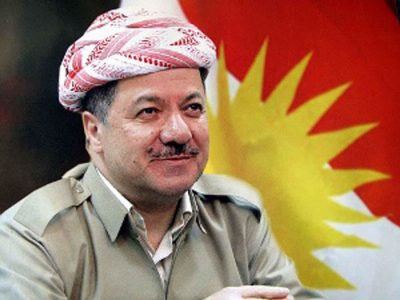The Referendum Dimensions in the Kurdistan Region of Iraq

Featured image: Masoud Barzani (Source: The Kurdish Project)
Iraq’s autonomous Kurdish region announced that it would hold a referendum on independence on Monday, Sept. 25, 2017. The realization of Kurdistan Regional Independence means the beginning of the disintegration of the countries of the region and the comprehensive security crisis in the countries of the region.
- The Iraqi Kurdistan Region is only the part of the country known as “the Kurdistan Region” with a certain level of autonomy and its capital is Erbil. The region has an independent parliament, judiciary, and security force. However, the Iraqi central government has legal authority over issues related to foreign policy and also the distribution of oil revenues.
- This referendum is opposed by the Iraqi central government and all the countries of the region. The United States is also opposed to the time of the referendum in the current situation in the region, not with the principle of independence. England is more interested in this referendum and the declaration of independence from any other country.
- In real position, Turkey in spite of close economic, energy and security ties with Masoud Barzani has posed serious threats against Erbil. Turkey’s direct access to Kurdistan’s energy sources is very beneficial for the country. The Turks have faced the stark choice in a contradiction between their economic interests and their security and political interests.
Israel is the only regime that frankly supports independence for the Kurdistan region of Iraq, because:
- It considers the independence in line with the advancement of its interests.
- The breakdown of the countries in the region is the greatest geopolitical advantage for the country.
- Masoud Barzani knows well that neither Iraq nor the region is prepared to accept an Independent Kurdistan at the present time, but why does he seriously play with this card? If we accept that the final goal of the referendum is to form an Independent Kurdish State, but Masoud Barzani, knowing that it would not be accepted by the countries in the region, has used the referendum as a lever to gain more advantage from Baghdad for the Iraqi parliamentary elections in 2018 and also an excuse to escape from the domestic political crisis in the region.
Any kind of conscious and unconscious move towards Iraq’s disintegration is opposed by the governments in the region. If we pass on the description of different dimensions of Kurdistan independence referendum, it will be desirable to pay attention to the point.
The time of CIA support of religious extremism under cover of al-Qaeda, Taliban, ISIL and Al-Nusra Front has passed. This can NOT be an effective method to serve America’s interests in the Middle East and even the European Union.
The endless separatism in Islamic countries and the support of separatist movements as the effective oppositions have been one of the old methods of controlling governments’ behavior and providing America’s interests. Therefore, Trump era may have been called the time of using the endless separatism technique to serve America’s interests in the Middle East.

